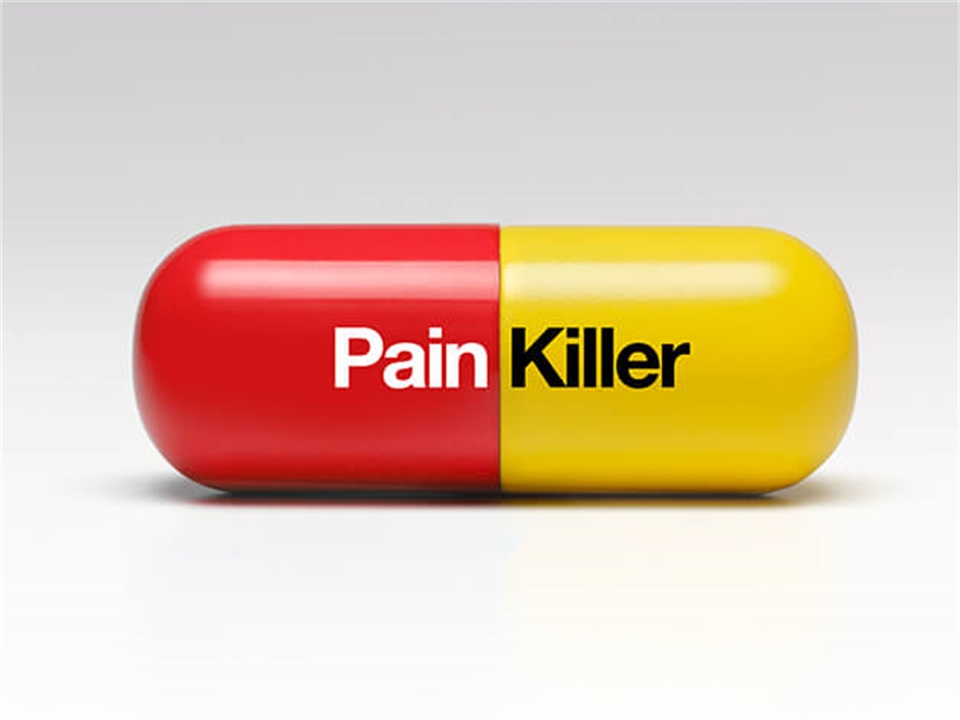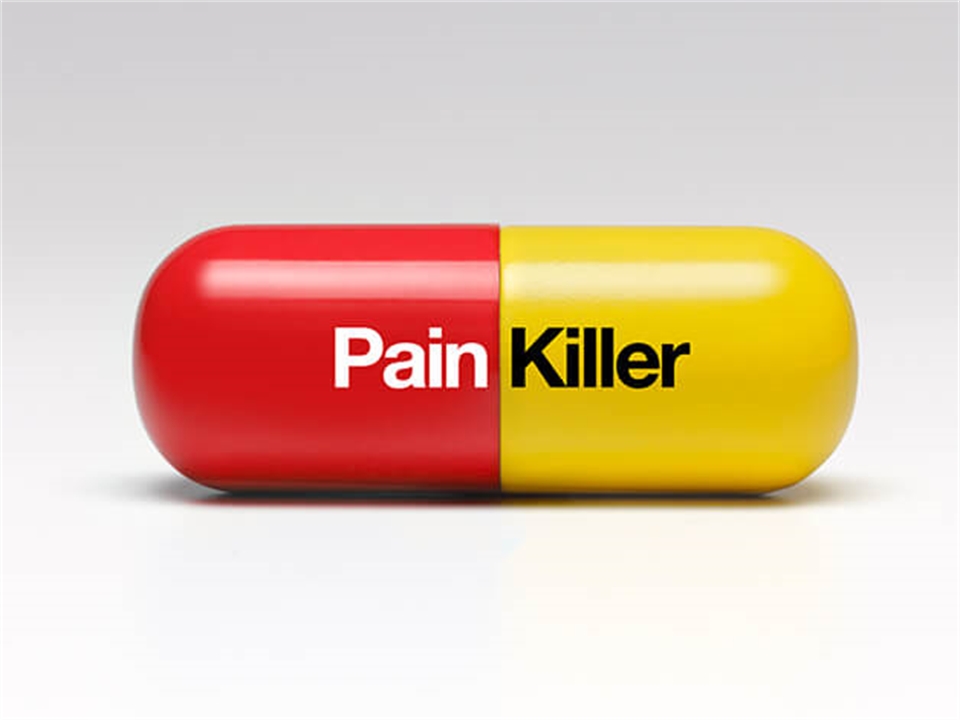What are the best painkillers for toothache?
A list of painkillers, used by dentists, to relieve symptoms of toothache, gum pain and other dental conditions.

Pain management in dentistry is of the utmost importance and can improve clinical outcomes. But it can also be a challenge. Work on the hard tooth structure does not usually result in excessive pain. Rather, the major cause of pain is often an inflammatory response which activates pain-producing mediators in the soft tissue. So the key lies in knowing if damage has already been done to the pulp and soft tissues, and whether or not treatment will create more of an inflammatory response. If so, the dentist must decide which analgesics (pain relief without the use of anesthesia or loss of consciousness) to administer, either pre or postoperatively, to relieve pain. Here are a few painkillers the dentist might prescribe:
Acetylsalicylic Acid (Aspirin)
This is one of the most well-known and most widely used pain killers in the world. In fact, it was the first nonsteroidal anti-inflammatory (NSAID) discovered. It reduces fever and works as an anti-inflammatory. It also reduces clotting, which is why many physicians prescribe it to help prevent strokes and heart attacks. For this reason, aspirin is not a good painkiller to use if you knock out a tooth (avulsed) or the dentist extracts it. Aspirin is not recommended for patients who are allergic to any NSAIDs, under the age of 16, or who have asthma or uncontrolled hypertension. Some side effects can include stomach irritation, indigestion, or nausea.
Ibuprofen or Ketoprofen
Many consider this to be the best over the counter painkillers for dental pain. This is another NSAID that is generally well tolerated, only producing some gastro-intestinal upset a few patients. Also, ibuprofen is often used in addition to paracetamol, to relieve more severe pain and add the anti-inflammatory. However, you should not use ibuprofen if you are asthmatic and be sure and read the label for other warnings and contradictions.
Acetaminophen or Paracetamol
Generally physicians prescribe this painkiller for minor headaches, muscle aches, backaches, fevers, and toothaches. Instead of reducing inflammation, these painkillers hinder the transmission of pain by blocking nerve signals to the brain. It is commonly used for patients who are allergic to NSAIDs and cannot take aspirin or ibuprofen. However, an excessive use of paracetamols can result in liver damage, especially when it is combined with other painkillers. This is why you should not take acetaminophen if you have severe liver disease.
Naproxen
Naproxen is another NSAID that reduces swelling, and to a degree will help alleviate pain. It works by reducing hormones that cause inflammation in the body. Typically physicians prescribe naproxen for swelling associated with menstrual cramps, bursitis, gout, arthritis, tendinitis, or ankylosing spondylitis. It can work on dental pain as well, to some degree. Note, if you have a history of allergic reactions to aspirin or other NSAIDs you should not use naproxen. And you should not take in higher doses or for longer than prescribed, as it can increase your risk of stroke or heart attack.
Co-codamol
This is a mixture of paracetamol and codeine phosphate that physicians prescribe for short-term pain relief. It comes in different strengths and works like acetaminophen. It reduces the production of prostaglandins (pain receptors in the brain) while the codeine phosphate mimics the action of endorphins produced in the spinal cord and brain to reduce pain. Some common side effects of co-codamol can include constipation, nausea and vomiting, dizziness, and drowsiness. You should not take co-codamol if you are allergic to codeine or paracetamol, or if you have respiratory depression, asthma, or liver failure.
Diclofenac
Physicians often use diclofenac to treat mild to moderate pain. It is another NSAID that reduces substances that cause pain and inflammation in the body and is stronger than Ibuprofen. Doctors usually prescribe it to treat symptoms of arthritis, menstrual cramps, or migraine headaches. Common side effects can include indigestion, diarrhea, headache, drowsiness, stuffy nose, or increased blood pressure. Diclofenac can also increase your risk of stroke or heart attack and can cause stomach or intestinal bleeding. Tell your doctor if you have high blood pressure, heart disease, a history of stomach ulcers or bleeding, asthma, and liver or kidney disease.
Tramadol
Doctors generally prescribe tramadol for moderate to severe pain and it is a narcotic-like painkiller. It is an opioid analgesic that acts on the central nervous system (CNS) and works in the brain, changing how your body responds to pain. You should not take this painkiller if you have breathing problems, severe asthma, or blockage in your stomach or intestines. Common side effects might include headache, dizziness, drowsiness, constipation, nausea, stomach pain, feeling anxious, or sweating.
Homeopathic options
For minor pain there are also several things you can do for temporary relief. Some of the most common options include ice packs, clove oil, and a topical anesthetic. You can also rinse your mouth with salt water and apply an icepack. These will reduce swelling and alleviate pain until you can have your tooth looked at by a dentist.
Whether the pain comes sharp and fast, or as a dull, lingering ache—tooth pain is distressing. It can stem from dental trauma, sores, exposed dentin or tooth decay, broken or cracked teeth, or infection. If the pain is excruciating, the first thing you want to do is get in touch with your dentist and seek treatment for the underlying cause as soon as possible. The dentist can then prescribe these prescription or over the counter pain medications to get you relief. As with any medication, you must use it exactly as directed or your physician prescribes. And if you show any signs of allergic reaction, including hives, swelling of the face, lips, tongue, or throat, or difficulty breathing, get emergency medical help.
https://google.com/url?rct=j&url=https://dentagama.com
https://google.com/url?sa=t&url=https://dentagama.com
https://maps.google.com/url?rct=j&url=https://dentagama.com
https://google.co.uk/url?rct=j&url=https://dentagama.com
https://google.co.uk/url?sa=t&url=https://dentagama.com
https://maps.google.co.uk/url?rct=j&url=https://dentagama.com
1 Copper Row, London Bridge
London, SE1 2LH
England
United Kingdom
OPEN 24 HOURS A DAY,
7 days a week, 365 days



